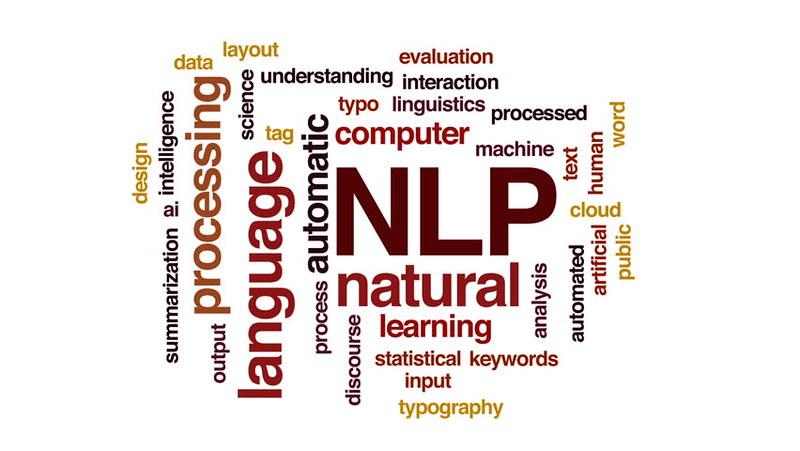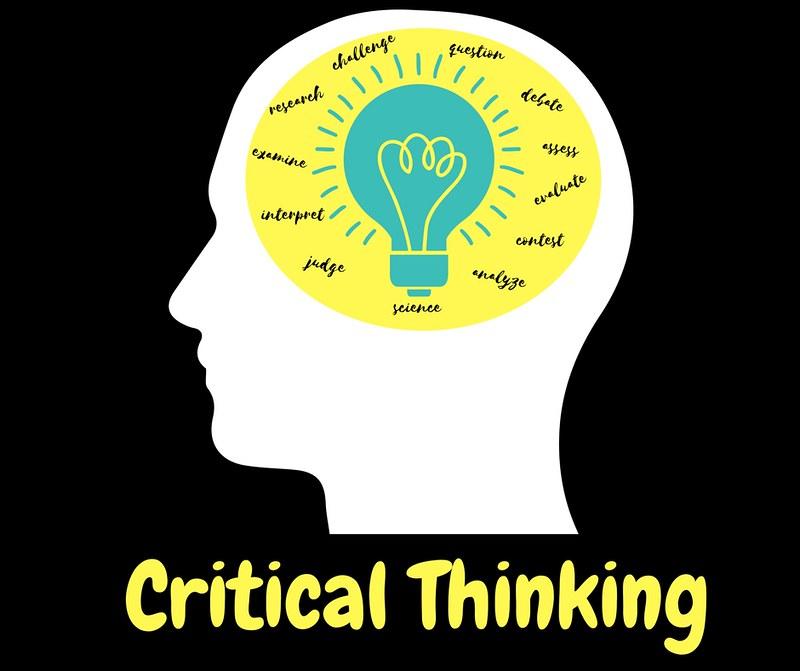NLP engineers are factors that contribute to creating tools that allow computers to talk to humans. This guide on how to become an NLP engineer will show you the steps to apply and work as an NLP engineer.
NLP engineering is a growing field with more and more AI-based tools appearing. So, becoming an NLP engineer is a wise choice if you are interested in this field. Let’s learn the steps to get into this position!
Who Is An NLP Engineer?
An NLP (Natural Language Processing) engineer is a specialized expert who develops and uses NLP techniques to make machines understand, interpret, and generate human language.
These engineers contribute much to the language-based AI apps you use today. Some popular ones include:
- Virtual assistants like Siri and Alexa
- Chatbots
- Automated translation services
- Sentiment analysis tools
NLP engineers have a strong machine learning, deep learning, and coding language foundation. They can also work with large datasets and understand linguistics deeply.

Job Duties
Are you curious about the duties of an NLP engineer? Below are the tasks I must complete in my NLP projects.
- Data collection and cleaning: I gather and organize a lot of text or speech data for projects, ensuring it’s neat and ready for analysis.
- Building algorithm: I design NLP algorithms and models that can understand and use human language, such as RNNs, transformers, and CNNs, tailored to specific tasks.
- Model training: I train NLP models using ML techniques to optimize their performance on various tasks.
- Evaluation and metrics: I test language models to see if they work well. Some metrics I often use include accuracy, precision, recall, F1-score, BLEU score, and perplexity.
- Domain adaptation: Sometimes, language models need to be more specific, like speaking the medical language or understanding legal texts.
- Model deployment: Once the language programs are ready, I ensure they are helpful in real-life apps, like chatbots or language translation apps.
- Tool integration: I integrate NLP libraries, APIs, or frameworks into apps and pipelines.
- Teamwork: I work with other experts, including data scientists and software developers, to build complete NLP solutions.
- Fixing problems: I identify and address challenges.

How To Become An NLP Engineer
Below are six steps to become a natural language processing engineer. In each step, I will give detailed guides on what you should do to complete this journey as quickly as possible!
1. Get A Bachelor’s Degree
NLP jobs are in high demand, and employers often prefer candidates with a Bachelor’s degree in relevant fields. So, the first step in your NLP journey is to get this degree with the appropriate major.
Picking the right subject to study in college is like laying the first brick for your NLP engineering career. You should choose a major connected to computer science (CS), data science, AI, or computational linguistics. CS is the most common choice because it covers essential programming, algorithms, and data structures.
The classes you take in these majors will teach you the basics of programming, ML, and working with data. These are the building blocks for making NLP models.
Typically, colleges offering these majors have special labs, teachers, and resources focused on NLP. They are super helpful because you get expert guidance and research chances.
In college, you should join AI or NLP clubs. Joining these groups can provide valuable networking opportunities, access to research projects, and exposure to real-world NLP applications.
After finishing your Bachelor’s degree program, consider advanced degrees such as a Master’s or Ph.D. if you want to specialize more. Some NLP positions in big companies may require or prefer candidates with these degrees.

2. Get Relevant Certifications
In a crowded job market, certifications make you shine! They make your resume look great and show you’re improving. Many employers prefer hiring certified pros because they come with a demonstrated level of competence.
So, research reputable certifications and get one (or several)! Here are some good options for you.
- NLP Specialization by Stanford: It’s a deep dive into NLP basics.
- TensorFlow Developer Certificate by Google: This one’s about using TensorFlow, a popular NLP tool.
- NLP Specialization by Coursera: It covers various NLP topics.
- CMLE: It shows you know ML, a vital part of NLP.
- CDS: It proves you’re great at analyzing data, a must for NLP.
Once you pass the test, you’ll get your certification. You can put it on your resume and LinkedIn to show your NLP knowledge and skills.
3. Hone Core Skills

Let’s break down the core skills needed to become a successful NLP engineer and contribute to exciting language technology and AI developments!
- Coding skills: You should start with Python because it’s super friendly and used a lot in NLP. Then, learn about data structures like lists and dictionaries. They’re like toolboxes for managing text data.
- ML and deep learning: You must understand the basics of ML and learn what supervised and unsupervised learning means. Also, learn about neural networks, gradient descent, and backpropagation.
- Using NLP tools: You need to know NLP libraries like NLTK and spaCy. Also, TensorFlow and PyTorch are your friends for building custom NLP models, so learn how to use them.
- Linguistics and language understanding: Start with some linguistics basics, like grammar and word meanings. If you can, learn more than one language. It’s handy because NLP deals with many different languages.
- Data cleaning: For this skill, you’ll need to learn about splitting text into words, getting rid of extra words, and making everything neat.
- Evaluation metrics: Understand metrics including accuracy, precision, recall, F1-score, BLEU score, and perplexity.
- Problem-solving and critical thinking: Train your brain to solve tricky language problems because NLP often involves tackling complex language challenges that require creative solutions.

4. Gain Experience
Experience solidifies your skills and demonstrates your passion and commitment to potential employers. Start by working on your own NLP projects, for example:
- Chatbots
- Language translation tools
- Text analysis apps
If you’re in college, I recommend joining NLP research groups or working with professors on NLP projects. You’ll dive into advanced aspects and connect with experts.
If you have completed your undergraduate studies, you can look for internships or part-time jobs at companies or labs that do NLP work. Experience in these places is highly valued by employers because you have worked in professional environments and been familiar with real problems.
Otherwise, you can offer your NLP skills on sites like Upwork or Freelancer. You’ll work on real projects and build your reputation.
Another good idea to gain experience is to join NLP competitions on Kaggle. You can solve real NLP problems. At the same time, you can learn from others’ solutions, even if you don’t win.
5. Build A Portfolio

Building a portfolio is making an online scrapbook of your NLP skills and projects. My following tips will help you make an attractive and informative portfolio for potential employers and collaborators.
A popular platform that helps you showcase your portfolio is GitHub. It’s a public library where others can learn from your code and collaborate with you.
If you use GitHub, I recommend creating clear ReadMe files. These files provide your project’s overview, how to run it, and dependencies. It gives instructions for visiting your portfolio.
In your portfolio, proudly talk about what you did in each project:
- The problems you solved
- Why your solutions are vital
- Special features you added
- Why your work matters
- What you achieved
Remember to make your portfolio more interesting with pictures, charts, or screenshots. For instance, if you built a chatbot, show how it talks with people.
Also, tell why you made certain decisions during your projects to help employers see how you think and solve problems.
If you can, deploy your projects on the internet so people can try them and share the web links in your portfolio.
6. Specialization

At this point, you should specialize in a particular NLP area to elevate your career as an NLP engineer. Specializing helps you stand out and brings many opportunities.
Here are some specializations you can consider (each subfield tackles unique language-related challenges):
- Sentiment analysis
- Machine translation
- Conversational AI and chatbots
- Speech recognition
- Information retrieval
To choose the right area, think about what you love the most. I recommend researching the job market to see which NLP areas have more openings. This way, you can align your specialization with potential job prospects.
Once you choose your area, dig deep into it by studying research papers, taking advanced courses, and doing projects. Try to become a pro in your chosen niche.
Besides, connect with experts in your chosen area by attending events, conferences, and meetups. If lucky, you will find a mentor who knows about your subfield to guide and help you navigate your path.
While specializing is good, don’t be afraid to explore other NLP areas. Being open to learning new things can make you more versatile in your career.
Salary and Career Outlook
According to ComputerCareers, an NLP engineer earns between $125,000 and $202,000/year in 2023. Compared to other fields, the salary in NLP engineering is attractive.
The demand for NLP skills is growing as more businesses/industries use language technology in various ways. The clearest evidence is the popularity of chatbots and language translation.
As AI technology becomes more popular, NLP engineers can expect many job opportunities and chances to increase their salaries.
Where Do NLP Engineers Work?
You can find NLP engineers in various industries as follows:
- Big tech companies: NLP engineers work for giants like Google, Microsoft, Amazon, and Apple. They help make better search engines, voice assistants, and more.
- Social media: Facebook, Twitter, and LinkedIn also hire NLP engineers. They use them to improve content suggestions, understand what people say, and make social media better.
- Healthcare institutions: In hospitals and clinics, NLP engineers work on medical notes, voice transcriptions, and chatbots that help patients.
- Financial companies: NLP engineers here help customers with chatbots and find fraud.
- E-commercial companies: Companies like Amazon and eBay use NLP to suggest products, improve search results, and make online shopping easier.
- Research and academic institutions: Some NLP engineers teach or do research in universities. They help others learn about NLP and make discoveries.
- Consulting firms: NLP engineers here provide expertise and solutions to clients in multiple industries.
- Government agencies: Governments use NLP to translate languages, understand public opinions, and find important information.
- Automotive industry: NLP is also used in cars. NLP engineers work on making cars that understand your voice and respond to it.
So, NLP engineers have lots of job options in many different places. They use their language tech skills to make things better in various industries.

FAQs
Is NLP Difficult To Learn?
NLP is challenging but is learnable with dedication. Basic concepts are accessible. Yet, mastering NLP, especially deep learning techniques, requires time and effort due to its complexity.
Is The NLP Engineering Career Good?
The answer is yes! The increasing demand for language technology makes it a lucrative and impactful field. As a result, you have many job opportunities.
How Do I Become An NLP Expert?
You need to focus on learning Python, ML, and deep learning. At the same time, study NLP libraries and frameworks, work on projects, stay updated with research, and collaborate with experienced pros to gain expertise.
Can I Become An NLP Engineer Without A Degree?
Yes, you can become an NLP Engineer without a degree. A strong portfolio, relevant certifications, and skills help you secure NLP positions even without formal education.
Conclusion
As you can see, becoming an NLP engineer offers many opportunities in the language technology field. This guide has shown you the way, from understanding the role to the steps for success.
NLP engineers make machines understand human language, and you can do it, too. Just remember these key steps: choose the right major, get certifications, learn the skills, gain experience, build a portfolio, and specialize.
Start your journey now!
